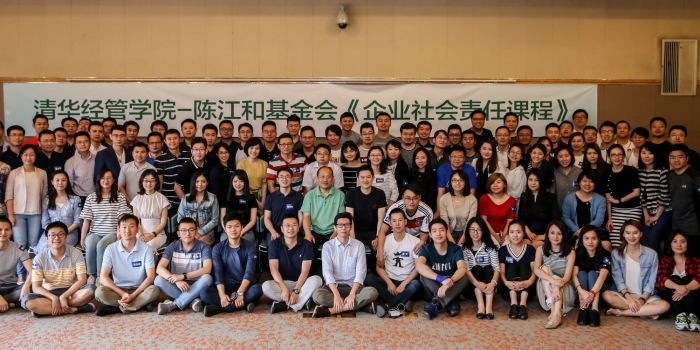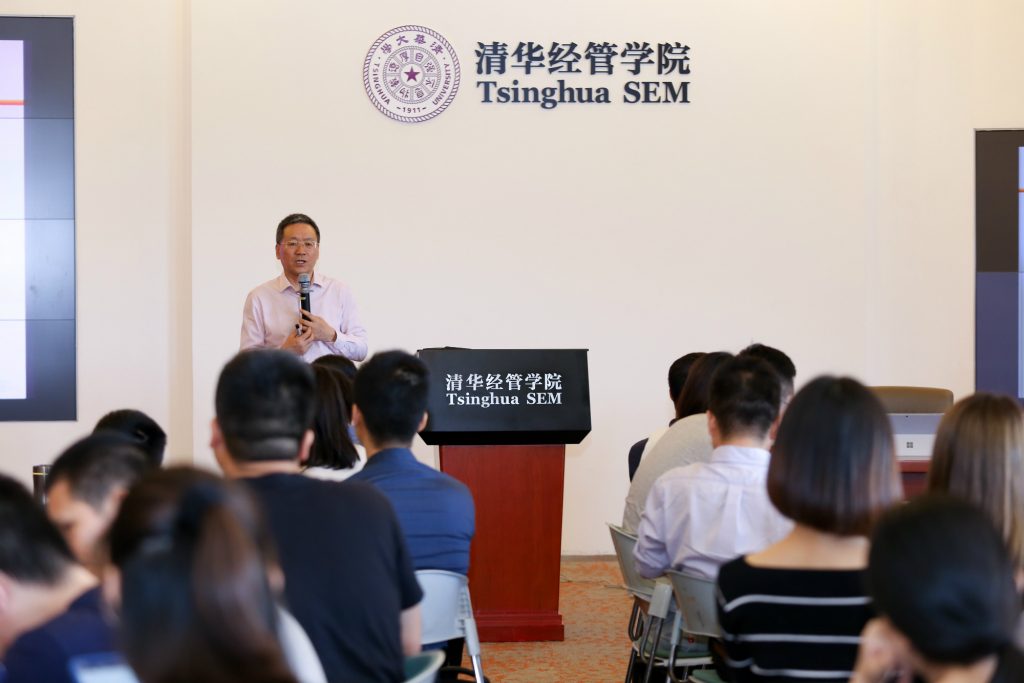Asia Pacific Rayon Debuts at Indo Intertex 2019
Asia Pacific Rayon (APR) debuted at the Indo Intertex in late March 2019. The event gathered manufacturers from various nodes of the value chain – fibre, yarn, fabric and garment....

Latest updates on what's happening in RGE Group

One hundred MBA students from the Tsinghua University School of Economics and Management in China attended the course “CSR Management: Challenges and Practices” from 26 to 27 May 2018. Sponsored by Tanoto Foundation, the elective module was organized by the university’s MBA centre and featured several speakers who emphasized the need for sustainability and the importance of integrating corporate social responsibility (CSR) practices in business operations.
As the number of CSR reports issued by companies in China has increased exponentially – from 32 reports in 2006 to 2,613 reports in 2016 – there is a great need to have well-trained CSR professionals. In 2016, the Foundation partnered with Tsinghua University to address this need by developing an annual programme to help broaden the understanding of sustainability and CSR.
In contrast to viewing CSR and sustainability commitments as a set of yearly ad-hoc activities, participants were encouraged to view CSR and sustainability commitments as long-term responsibilities that involve various aspects of a business’ operations, sometimes requiring accelerated evolution as well as renewed engagement with key stakeholders. It involves ensuring that growth doesn’t come at the expense of the community nor of sustainability, of being aware that our actions impact current and future generations as well.
Jia Feng, Director, Center for Environment Education and Communication of Ministry of Ecology and Environment, underscored the need for enterprises to protect the environment for the use and enjoyment of our future generations.
Li Wen, an expert from the China Federation of Industrial Economics, talked about the strategies and approaches to risk mitigation for Chinese companies that wish to expand internationally.
Yin Gefei, Chief Expert of Goldenbee Management Consulting Firm, talked about how adopting CSR best practices must inform every segment of an enterprise’s value chain.
Gary Gao, Deputy GM of Sustainability of RGE (China), shared his insights on stakeholder engagement and the importance of having a CSR management framework. Using RGE’s sustainability framework as a starting point, he cited various sustainability and CSR practices from various RGE-managed business groups.
This includes Sateri’s partnership with industry peers to promote the sustainable development of viscose, as well as Asia Symbol’s water recycling efforts and its “I’m a little paper maker” community development programme which teaches the importance of recycling to kids. These provided the MBA students with practical examples of how sustainability and CSR were consistently applied across an organisation’s operations.
At the end of the two-day course, students commented that it helped them see how balancing economic, social and environmental interests was critical to ensure that growth is sustainable as well as shared with everyone.
